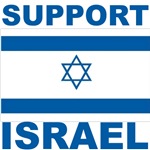Attack of the Blogs? - Really?
Browsing through Forbes magazine, an article caught my eye, 'Attack of the Blogs'. (Forbes magazine: 14Nov05).
According to Daniel Lyons;
The first is that blogging and bloggers can abuse their exercise of free speech. Just as we can't meaningfully have rights without responsibilities - in my view they are 2 sides to the same coin - then truth must also be the flip side to free speech.
The second facet deserves more thought. Why does such an article appear in Forbes, as opposed to another media outlet, or even another magazine? I think the answer probably points to a much deeper issue, and that issue is the difference between the older, established media forms, and the new kids on the block. The new family being the internet, and the precocious child being the blogosphere.
Business has long been able to sell it's wares, create it's image, unilaterally. A PR firm, and advertising campaign, a market presence that they control. Essentially only limited by the resources they wish to commit to the process.
Now, there is another factor to consider, the internet, and blogs in particular. Word of mouth writ large. Now, a disgruntled customer (or a happy one) can make their views known to a much larger audience.
There is now another factor in marketing and communication. Any little guy can now have a voice, and an opinion, determined not by the resources available to them, but by the case they make, and how they present it.
And, it seems some of the older, established players may not like this turn of events too much?
According to Daniel Lyons;
"Web logs are the prized platform of an online lynch mob spouting liberty but spewing lies, libel and invective....".The full article is worth aread, but there are at least two facets to consider;
The first is that blogging and bloggers can abuse their exercise of free speech. Just as we can't meaningfully have rights without responsibilities - in my view they are 2 sides to the same coin - then truth must also be the flip side to free speech.
The second facet deserves more thought. Why does such an article appear in Forbes, as opposed to another media outlet, or even another magazine? I think the answer probably points to a much deeper issue, and that issue is the difference between the older, established media forms, and the new kids on the block. The new family being the internet, and the precocious child being the blogosphere.
Business has long been able to sell it's wares, create it's image, unilaterally. A PR firm, and advertising campaign, a market presence that they control. Essentially only limited by the resources they wish to commit to the process.
Now, there is another factor to consider, the internet, and blogs in particular. Word of mouth writ large. Now, a disgruntled customer (or a happy one) can make their views known to a much larger audience.
There is now another factor in marketing and communication. Any little guy can now have a voice, and an opinion, determined not by the resources available to them, but by the case they make, and how they present it.
And, it seems some of the older, established players may not like this turn of events too much?







